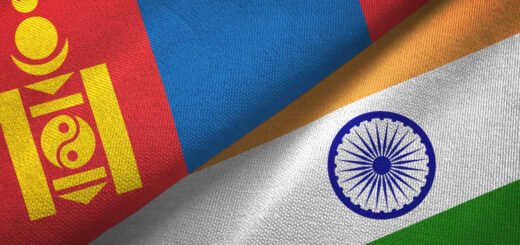Postcards from Paris: Indo-French Cooperation and the New World Order

Mr Emmanuel Lenain, Ambassador of France to India and Dr Samir Saran, President of Observer Research Foundation joined a digital conversation on Friday where they discussed the scope of relations between India and France as well as the emerging new world order in the aftermath of COVID-19.
As a seasoned diplomat, Ambassador Lenain painted a rich tapestry of contemporary issues and acquainted his audience with the role of Paris currently. He started the conversation with an overview of the situation in France in the wake of the pandemic.
He presented a very optimistic view as he believes that the situation is getting better and that his country is winning against the present crisis. The lockdown has been lifted, the number of COVID-19 patients have decreased and contingency plans are being prepared for the second possible wave of the infection. The looming concern now is the state of the economy but fortunately, significant relief packages are being designed by the French as well as the EU governments.

Upon Dr Saran’s inquiry regarding the learnings the French could share with India, Ambassador Lenain emphasised the ideals of discipline and solidarity
This crisis has proven the importance of the European Union and their use of collective action in the face of adversity. The outbreak of COVID 19 highlighted the existing challenges and EU has been worried by the reaction of the international community to the pandemic as it witnessed strong assertion of power mentalities, rivalries for influence, and pushing of domestic agendas. However, the EU has always strengthened in times of crises. Accordingly, the EU is working on an impressive economic recovery package which will target sectors and countries that really need them. The combination of the Union-wide package and national efforts will be essential.
EU has also realised that it cannot just rely on one country for goods and that it should re-establish itself as a global player and level the playing field. There has been a strong awakening among certain EU nations regarding the necessity for a strategy concerning China. The strategy should mirror China’s determined and long-term approach and rival their economy and technological capability. A strong need has been realised to develop strategic industrial autonomy and plural sources of supplies for themselves. In the meantime, the EU and China should focus on partnering for global issues such as climate change.
Cooperation has always defined the transatlantic relations between the European Union and the United States. They have left never each other’s sides and NATO has further strengthened the bond. However, in recent times, the EU has been surprised by the changes in the United States as it has become progressively unpredictable. In addition, the current administration had switched its attention and resources to the Asian and Pacific regions. The future will be determined by the results of the upcoming American elections but EU hopes that the United States soon returns back to its usual contribution to the international system.
France has been very proactive in shaping the Indo-Pacific but the EU has been a different matter according to Dr Saran. Ambassador Lenain agreed as he reiterated France’s commitment to Indo-Pacific strategy and explained that some of EU countries have not been so involved because of the geographical distance in contrast to France who have some linkages in the region in form of places like New Caledonia. However, as a result of the new strategic awakening, Ambassador Lenain is confident that the EU will seek better connectivity in the region and discuss its possibility in the next EU-India summit.

Concerning the 5G debate, the French Ambassador stressed the need for autonomy in the field of technology. There has been a rise in stringent plans, red tape and legal frameworks for communication provider companies. Whilst he thinks that there will not be a cold war on the basis of technology, he does state that there are strong concerns about security and data that need to be addressed urgently. A number of initiatives such as the Budapest Convention have been developed to deal with the threat of cyber-related crimes and attacks.
The Ambassador is glad that India had established and maintained commendable relations with a great number of countries such as Australia and the United States. He believes that these relations will inform his country’s involvement in the region and that they welcome it. He recounted that France has always been on India’s side and that they are all-weather friends. He truly appreciates the medical aid India has provided France in the time of COVID-19 and recapped the reciprocity his country has shown to India. He stated that France is open to a complete strategic alliance and partnership with India.

There can be no better link between two countries than people to people exchange and there are no better facilitators than students looking to pursue high studies. The Ambassador welcomes all Indian students and highlighted the French efforts made to encourage them. He informed that costs are affordable and numerous scholarships are available to accommodate the students. He ensured that all measures will be taken to make the institutes safe in the face of COVID-19 and all necessary provisions will be made. In addition, he outlined work opportunities and ideal conditions that will allow Indian students to make the most of their experience in France.
After an extensive round of questions from the audience concerning the South China Sea, France’s nuclear capabilities and US-Iran tensions, the conversation came to an end after a final question asked by Dr Saran concerning a possible coalition of middle powers who believe in strategic autonomy and led by France and India.


















